Levelling the playing field: female candidates in the 2012 PNG Elections
21st June, 2012

A female only ballot box for PNG’s 2012 Elections. Photo by Mike Wightman, AusAID
In what might be a world record, 3,435 candidates will contest just 109 parliamentary seats in the upcoming the Papua New Guinea National elections in June. To say there is a paucity of female representation in the Papua New Guinea’s Parliament is a rather massive understatement. There is just one woman in PNG’s Parliament, Dame Carol Kidu, who is Leader of the Opposition, and she will retire from politics this year.
In fact, there have only been three other women elected since Independence— Dame Josephine Abaijah, Dame Nahau Runi and Waliata Clowes. Not surprisingly PNG is ranked 119 out of 121 countries on female political participation. In the 2007 elections there were 2,759 candidates, of which 103 were women. And while Dame Carol was the only woman who won a seat, 2007 was the first time in history where all twenty PNG provinces had women contesting elections.
A report on the 2007 elections showed women candidates are generally more focused on social welfare, family, good governance and rights issues and policies. The report also indicated that women candidates display good leadership and decision making qualities—qualities desperately needed in PNG’s leaders.
PNG elections expert Dr Alphonse Gelu from the PNG’s National Research Institute recently gave another rather compelling reason to vote women into parliament. He told a gathering in Port Moresby a few weeks ago that politicians are leaders and leaders are ‘Bigmen’. “Many ‘Bigmen’ don’t do any work, because they don’t have to”, he said. Whether this is accurate or not, the feeling that PNG is suffering from poor leadership is
pervasive in the country’s newspapers, TV bulletins, bogs and airwaves.
This year there are 676 more candidates than in 2007, but only 32 of this additional number are women. It’s not surprising that women in PNG don’t contest elections in proportion to their overall numbers (do they anywhere in the world?). In PNG, compared to male candidates, female candidates have far more limited access to funding to run their campaigns. Women have difficulty attracting good campaign staff, partly because, as history shows, they have almost zero chances of being elected to a position where they can actually pay their staff. All this conspires to deny women a fair go, and there’s a good chance this will happen again in 2012.
Limited preferential voting, introduced in the 2007 election, provided another avenue for cashed-up candidates to improve their chances of election, according to Dr Gelu, by the sale of preferences. Preference one is fifty kina (approximately A$22), preference two is thirty kina and preference three is ten kina.
 Undeterred, Ms Loujaya Toni is running for the Lae Open seat in the upcoming general elections in June. Loujaya told me why she was running. “I come from outside Lae and in my village people have to walk for kilometres to get water and there is no electricity. It’s not good enough and I want to change it. I am a family relation of the sitting member, and I am running against him because I feel so strongly about these issues.”
Undeterred, Ms Loujaya Toni is running for the Lae Open seat in the upcoming general elections in June. Loujaya told me why she was running. “I come from outside Lae and in my village people have to walk for kilometres to get water and there is no electricity. It’s not good enough and I want to change it. I am a family relation of the sitting member, and I am running against him because I feel so strongly about these issues.”
Last month Loujaya attended training designed specifically for women on how to develop an election campaign strategy. She said the training had given her a sense of self-belief and enabled her to understand the mechanics of running the election race.
Ms Loujaya Toni attends AusAID-funded training for women on how to develop an election campaign strategy. The training was funded through AusAID and delivered by the Centre for Democratic Institutions at the Australian National University in partnership with PNG’s Office for the Development of Women. It equips women candidates with skills and information about campaign planning and logistics, including the management of finances and support teams, public speaking and electoral rules.
Most of the candidates who participated in the training will contest Open or Governor’s seats in the elections, while others are preparing for local government elections next year. The training is designed to ‘level the playing field’, because it is clear that women face many more challenges to participating in political processes including social, cultural and economic challenges.
In the 2012 elections, 135 women will run for office. While it is clear that women’s participation in the electoral process is still limited in PNG, we hope that through assistance from partners such as Australia and courageous women like Loujaya, more women will be inspired and empowered to get involved.
* * *
By Mike Wightman, First Secretary, Public Affairs, AusAID, Papua New Guinea, posted on the AusAID Blog, Engage
About the author:
Mike has worked in a number of public affairs roles for AusAID including for the Indonesia Desk after the 2004 Indian Ocean Tsunami, Post Liaison and Emergency Response and now in Papua New Guinea. He has an undergraduate degree in Communications and a Masters of Marketing Communication from the University of Canberra.

